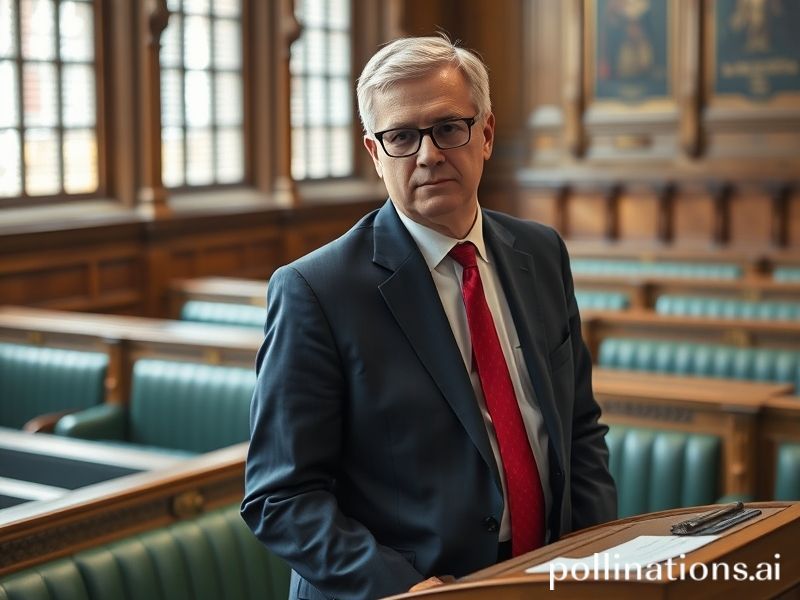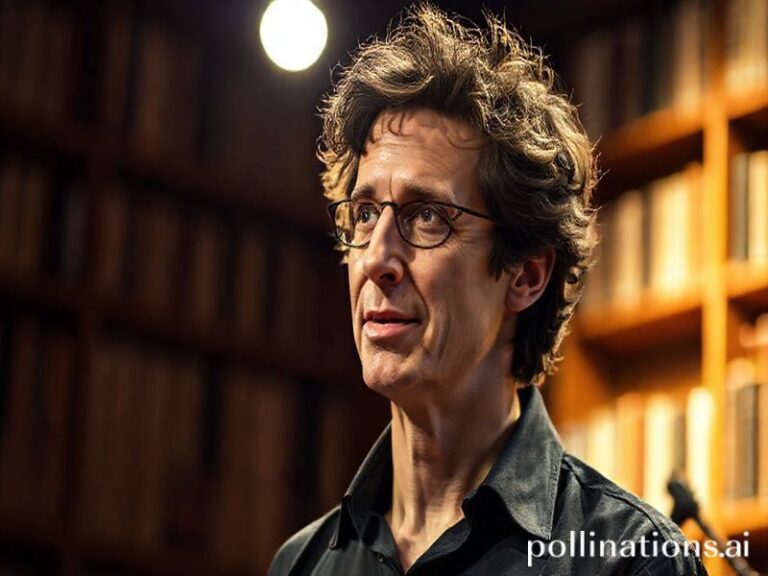John Healey: Britain’s New Defence Chief Tries to Look Useful in a World That Moved On
John Healey, the newly-minted British Defence Secretary, has the sort of surname that sounds like a minor medical condition—something you’d pick up after an ill-advised weekend in Tbilisi. Yet the man himself is no rash; he is, depending on whom you ask, either a methodical fixer or the human equivalent of a damp firework: promising, but unlikely to set the sky ablaze. Appointed in July 2024 after Labour’s electoral rebound, Healey inherits a portfolio once reserved for Churchillian cigars and Churchillian delusions of grandeur. Today, the job mostly involves explaining to journalists why a £6.3-billion aircraft carrier can’t deploy without a Canadian tugboat and a Dutch barge.
Globally, Healey’s elevation matters because Britain still pretends—adorably—that it is a “tier-one military power,” a phrase diplomats translate as “has nukes and nostalgia.” The United Kingdom spends more on defense than India, despite having one-sixth the population and roughly one-eighteenth the existential threats. That fiscal eccentricity means Healey’s spreadsheets reverberate from Kyiv to Kuala Lumpur. Every pound sterling he trims from a frigate is a pound that won’t prop up an Estonian forest base or a Pacific freedom-of-navigation jaunt. In short: fewer gin-and-tonics on the quarterdeck, more anxious WhatsApp pings in Vilnius.
Healey’s first foreign policy test arrived faster than a Russian drone over Crimea: the new Labour government pledged an “immediate review” of arms exports to Israel. Cue synchronized pearl-clutching in Washington and Jerusalem, where officials privately regard British weaponry as the diplomatic equivalent of artisanal cheese—nice to have, but hardly essential. Still, symbolism travels farther than munitions. When a G7 defense minister publicly doubts your war, it’s like being unfollowed by an Instagram influencer: the numbers stay the same, but the optics sting.
Meanwhile, 5,000 miles east, defense planners in Seoul watch Healey with the weary interest of binge viewers who’ve seen this season before. South Korea exports more artillery shells in a fiscal quarter than Britain fires in a decade; they know that Europe’s promises of “steadfast support” often come with the durability of a chocolate teapot. If Healey trims the Royal Marines to fund cyber-ninjas who can tweet in Cyrillic, Pacific allies will notice—and recalculate their own deterrence shopping lists accordingly.
The cynical subplot, of course, is that none of this may matter. Modern warfare is increasingly boutique: small drones made in Shenzhen, loitering munitions financed by a Saudi sovereign wealth fund, propaganda farms subcontracted to Macedonian teenagers. Healey’s challenge is to keep Britain’s brand relevant in a bazaar where yesterday’s aircraft carriers are today’s floating LinkedIn profiles. Expect press releases about “AI-enabled lethality” and “multi-domain integration,” phrases that sound impressive until you realize they’re essentially horoscopes for hardware.
And then there’s the nuclear question. Healey supports Trident renewal, a program whose lifetime cost now rivals the GDP of Slovenia. Each Vanguard-class submarine is a cathedral of deterrence: awe-inspiring, ruinously expensive, and rarely visited by anyone who isn’t either ordained or very lost. If one day the missiles actually fly, future historians—presumably cockroaches with PhDs—will note that the decision was made by a man who once chaired the All-Party Parliamentary Group on Football Governance. Sic transit gloria mundi, with a Geordie accent.
In the end, John Healey is less a hawk or a dove than a moderately agitated pigeon, cooing for NATO unity while eyeing the Treasury’s dwindling bag of chips. The world will watch to see whether he can turn Britain’s armed forces into something more than a ceremonial guard for American foreign policy. If he fails, the repercussions won’t be felt in Whitehall but in places like Chisinau and Honiara, where small nations bet their security on Britain’s ability to mean what it says. And if he succeeds—well, stranger things have happened. Just not recently.







